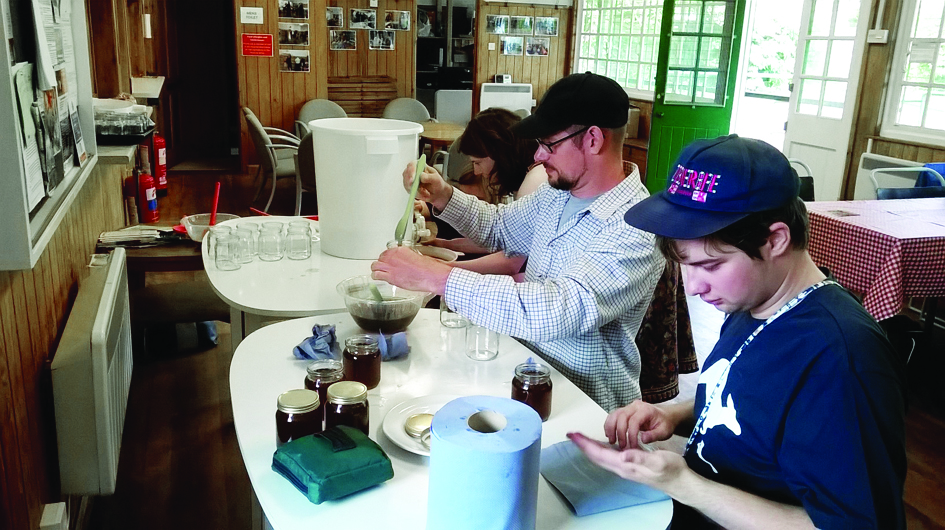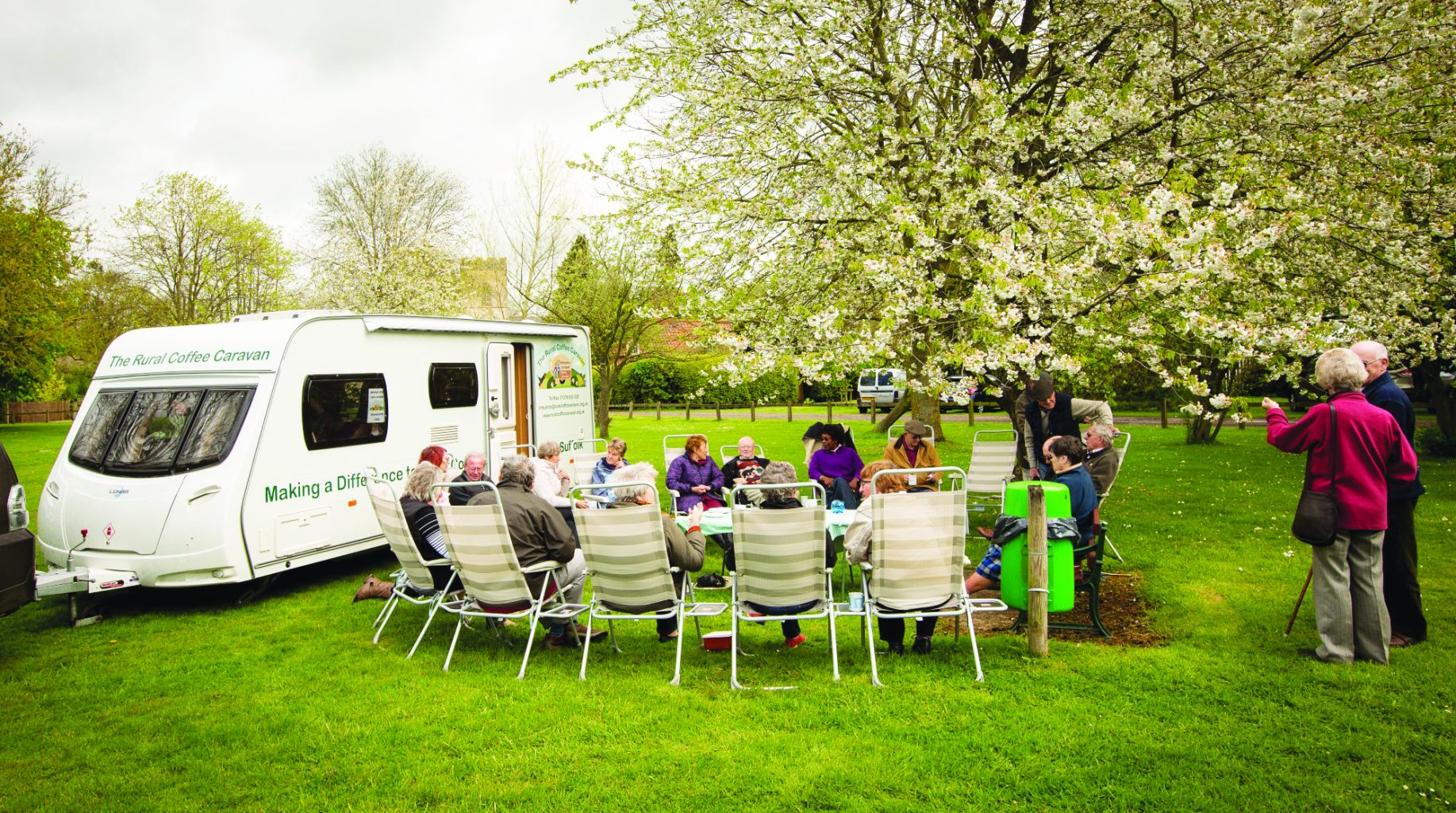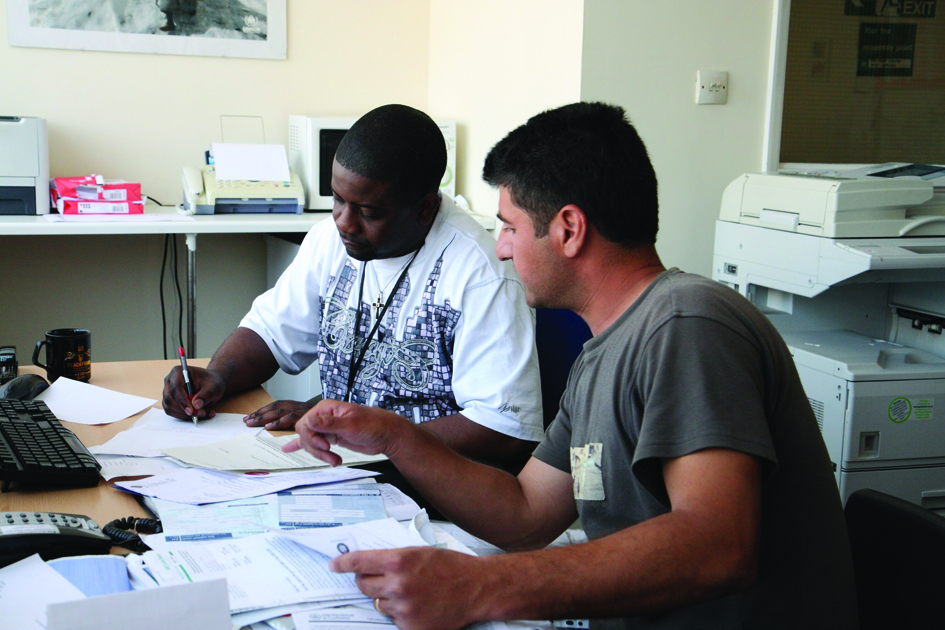Partnerships with Trusts and Foundations
ActivLives at their community garden in Ipswich.
For some years now Suffolk Community Foundation has been accessing new money for the county from national organisations, and distributing these funds deep within our local communities.
Every year funding worth thousands of pounds flows into Suffolk, and it is the partnership between national funders and the foundation’s expertise that ensures financial support reaches projects for those most in need in our county.
Among the most significant partnerships formed are those with the Esmée Fairbairn Foundation, The Henry Smith Charity and more recently, the Pargiter Trust and The Frank Jackson Foundation.
Most people are unlikely to have heard of these national charities but they’ve helped make a difference to many lives across our county. It is thanks to Suffolk Community Foundation that these funds have become available.
The oldest of these organisations is The Henry Smith Charity, dating back to 1628 with a legacy of £2,000 from a man who wanted to help others.
“Today this original cash sum might seem small but The Henry Smith Charity now makes grants in excess of £25 million a year,” says Head of Grantmaking Andy Winders.
The Henry Smith Charity’s Andy Winders, said, “historically The Henry Smith Charity had connections with eight counties in the south of England and Suffolk is one of them.
Charities that have received grants through Suffolk Community Foundation include Age UK Suffolk, Iceni Ipswich, Headway Suffolk, Suffolk Family Carers and Felixstowe Youth Development Group.
It has also awarded £3,000 to the Rural Coffee Caravan Information Project, which organiser Ann Osborn says has been used to help fund Golden Age Fairs around the county.
“Suffolk Community Foundation looks after a grantmaking programme for us worth £150,000 a year, targeting charities working within health and social welfare.”
It has also awarded £3,000 to the Rural Coffee Caravan Information Project, which organiser Ann Osborn says has been used to help fund Golden Age Fairs around the county.
“We offer free afternoon tea and activities that range from vintage Meccano to quilting and photography. Lots of agencies and service providers also attend, offering advice about a wide range issue that affect older people.
“Most attendees don’t seem the be aware that half these agencies exist or that there’s even help available.”

Honey jar making at ActivLives

Rural Coffee Caravan
Meanwhile the Partiger Trust, set up in 2005 by The Honorable Isobel Cooper-Heyman, is offering a new stream of grantmaking in partnership with Suffolk Community Foundation.
Chair, Suzanne Gardiner explained the trust aims to alleviate social isolation and stress for older people.
“We want to help disadvantaged older people to be independent, healthy and socially included. We were particularly impressed not just by Suffolk Community Foundation’s enthusiasm, but also its Surviving Winter campaign which in recent years has raised more money than any other county in the country.”
In partnership with the East Anglian Daily Times, Citizens Advice, Warm Homes Healthy People, East of England Co-operative Society and Ipswich Building Society, almost 700 grants were made to older members of the community who were unable to afford to heat their homes during the winter months in 2017/18.
The Esmée Fairbairn Foundation is another relationship cultivated for Suffolk.
John Mulligan, Director of Funding Development at the Esmée Fairbairn Foundation, said they became aware that they were not reaching parts of Suffolk and East Anglia that were in real need.
“We read Suffolk Community Foundation’s Hidden Needs report and got in contact because we wanted to create a formal relationship. “We wanted to be involved with an organisation that had real experience and knowledge of the area.”
His charity was created in 1961 by Ian Fairbairn, a leading City figure, as a memorial to his wife Esmée using his holdings in M&G, which pioneered the unit trust industry.

Suffolk Refugee Support

ActivLives Community Resource Education and Skills Space Pavilion
Esmée Fairbairn works with the arts, environmental spaces, children and young people for social change.
In Suffolk they have given funds to Ipswich Housing Action Group, the Rural Coffee Caravan Information Project, the Bridge Project and Anglia Care Trust.
Suffolk Refugee Support has also benefitted with a £15,000 of grant over two years for core funding.
Rebecca Crerar says the Ipswich- based service serves refugees and asylum seekers in Suffolk, supporting individuals forced to flee atrocities in their home countries.
“This grant has made a real difference. It’s very difficult to get core funding to help with running costs,” she said.
Suffolk Refugee Support works with 600 people from countries including Sri Lanka, Iran, Pakistan, Zimbabwe, Nigeria, Albania, Malawi and Eritrea.
Our Head of Public Affairs Tim Holder says, “one of the most important duties of the foundation is to provide a sustainable platform for giving into the county.
“It is our deep knowledge of the voluntary sector in Suffolk that has really attracted national funding. National funders would not have been aware of the depth of need that exists, or which organisations are best placed to deliver solutions and support without our local knowledge.”
“With about 78% of charitable giving leaving Suffolk in support of the top 3% of the largest national and international charities, it’s essential that we bang the drum for local organisations.
“Raising money from within is of course vital, but the continued development of new and existing relationships bringing new money to Suffolk, will remain a foundation priority.”
We want to help disadvantaged older people to be independent, healthy and socially included. We were particularly impressed not just by Suffolk Community Foundation’s enthusiasm, but also its Surviving Winter campaign which in recent years has raised more money than any other county in the country.
We read Suffolk Community Foundation’s Hidden Needs report and got in contact because we wanted to create a formal relationship. We wanted to be involved with an organisation that had real experience and knowledge of the area.

